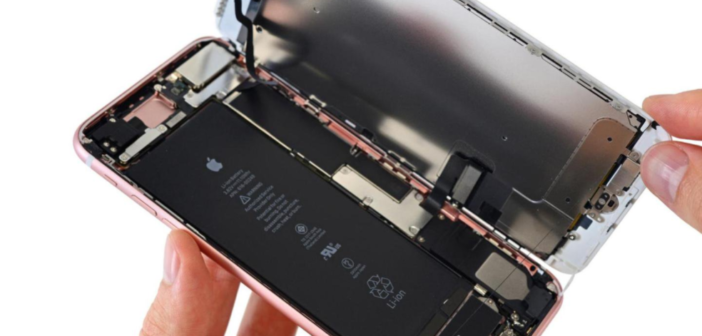By: Travis Farmer
Anyone who has broken an electronic device and brought it to a repair shop may have encountered the phrase “This may void your warranty.”
Some companies state in their policies that outside repair shops are not licensed to fix their electronics. An example of a company that has a policy such as this is Apple. The act of a separate repair shop simply opening a phone and fixing it may void the warranty on a device.
But why is this? Why would Apple or other similar companies want their devices to be kept shut and only repaired by people that the company allows?
There’s also the issue of whether or not they’re even allowed to do this. In recent years, several bills and acts have been brought up by states that would require manufacturers to supply the same information and manuals that they give to licensed shops to independent retailers. With this legislation, several companies have come out in opposition against these efforts, such as Apple and John Deere.
The right to repair is generally seen as the right you have to open and repair your device or vehicle. This basic right has been a problem with devices such as electronics and vehicles, namely with John Deere farming equipment.
The fight for the right to repair began in 2001 and focused mainly on vehicles, but in more recent years with the advent of smartphones has begun to stretch to phones and home computers. Apple famously makes their devices difficult to repair, by ways such as including screws requiring uncommon screwdrivers, adding unnecessary glue, or making parts incredibly expensive.
At a local electronics repair shop in Dade City, the difference between the repair for an Apple phone versus a repair for a non-Apple phone is apparent. The repair of an Apple phone screen costs more and takes longer in almost every comparable situation.
The primary argument for the right to repair is the idea that you should own anything you buy. People want to be able to fix the phone they have themselves when something fails or to have it repaired for cheap at an independent store. They don’t want to have to purchase a new device or exchange an arm and a leg for a simple fix at an official, licensed store. Supporters believe that they have the right to fix their own items, to have manuals to be able to fix things, and to even be able to get into the code and software of the device.
One of the most common arguments against the right to repair is the idea of intellectual property rights. Apple and other companies against repair legislation want their intellectual property, or IP, to be kept their own. In the company’s opinion, if people are fully allowed to take apart and snoop around in their products, they may be attempting to make a superior or at least similar product by copying their schematics.
A different argument that has been brought up by lobbyists and other spokespeople against the right to repair is that the repair may be dangerous. For example, a lobbyist famously claimed that consumers could possibly cut their fingers on the broken glass from a screen repair. While this claim got a lot of criticism and jokes made about it, the argument is valid when dealing with batteries. The batteries in electronics are known to possibly be volatile, such as in the recent fiasco with the Samsung Galaxy Note 7.
One organization fighting for the right to repair is the website iFixit. iFixit is an independent repair company that believes that every consumer has the right to repair anything they own. On their website, they have a page dedicated to the issue, stating “Would you buy a car if it were illegal to replace the tires? Or a bike if it were illegal to fix the chain?” iFixit supplies consumers with guides on how to repair problems with electronics, as well as parts.
For example, when a new Apple device comes out, iFixit will quickly tear it down to be able to create guides on how to replace the screen or the home button. Due to the lack of official repair manuals or documents, many independent repair shops use iFixit religiously, using tools, parts, and guides all supplied by the website.
This problem stretches far beyond electronics, as it affects vehicles and farming equipment as well. For example, Apple is planning to make a smart car. When the car comes out, what will happen if one needs an oil change or windshield wiper fluid? Without right to repair legislation, it is possible that simple fixes and maintenance like this could be highly overcharged and companies may even void your warranty if done at home. This possibility leads to a worrisome future that lawmakers are trying to get ahead of before we truly approach a monopoly.





